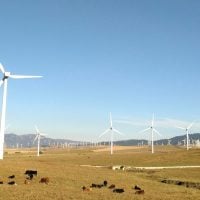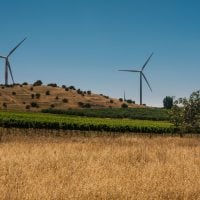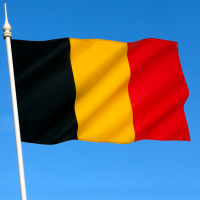Deadline: 13-May-24
The U.S. Department of State’s U.S. Consulate General Kolkata announces an open competition to implement a program to support and train environmental/climate journalists across India.
People living in various parts of India are acutely vulnerable to the dangerous consequences of climate change and pollution-generated health issues yet remain largely ignorant about the sources of environmental hazards and the related health and safety risks, and lack information and resources to effectively address these challenges. Issues like climate change, environmental degradation, and air quality affect people everywhere, regardless of borders, and require consistent and holistic action at all levels to be effective.
This project’s participants, all members of the media community, will learn how to identify and curate reliable information on climate change, and how to utilize the full range of resources available to address it, in order to support India in reaching its 2030 commitments for SDG 13, which includes reducing emissions intensity by 33-35%. Further, the project will highlight the dynamic U.S.-India cooperation on climate issues.
Objectives
- Objective 1: Strengthen the reporting capacities of 40-50 journalists in each of the 6 workshops (total 300) and improve data-driven media reporting through these training workshops over 18 months and provide them technical knowledge by citing U.S. case studies, USG and international policies, to substantially report more on climate change, using factual and actionable information.
- Objective 2: Increase the number of actual reports, amplify the social media narrative, and increase the number of articles where the journalist ties environmental issues to policy issues, and speaks to policy makers regarding these topics, through increased confidence in background on topics and ability to source reliable information, as well as increased ability to pitch stories related to environmental and climate topics. Initial impact will be evaluated based on volume of stories that highlight U.S. engagement with India published by participating journalists over the course of the program, and in the six months following program conclusion, as compared to volume of stories published prior to participation.
- Objective 3: Improve reliability of information on climate and environmental issues through accurate reporting. The proposed media training program will examine media approaches to sourcing accurate information and data, generating public awareness and influencing policy makers by exploring data resources, U.S. governmental programs, non-governmental strategies, and private-sector investments to understand climate change factors and reduce greenhouse gas emissions, increase renewable energy sources, and support vulnerable human and natural populations at greatest risk from climate change. It will also examine U.S. and Indian media efforts that support and generate campaigns to protect climate, environment and biodiversity through environmental laws and protection policies, scientific research, and environmental education awareness. The articles will increase 25% support for climate action to promote increased resilience to the impacts of the climate crisis and keep the goal of limiting warming to 1.5°C within reach, as well as helping India reach its goals under SDG13, which it is currently behind on. The articles will have more technical details that will be a direct measurable result of skill building of the target audiences.
- Objective 4: Participants and U.S. and local experts will also discuss priority areas that can be highlighted by media for practical actions to raise awareness on climate change challenges and promote public engagement in environmental conservation to reach net zero emissions and limit global warming to 1.5°C. Through consultations with the U.S. Environmental Protection Agency (EPA) and other experts, the participants will learn to evaluate national, state, and local progress across India towards linking policymaking with public support for practical solutions to improving human and ecosystem health, and addressing other climate change issues.
Project Goal
- Improve data-driven and accurate media reporting, amplify the social media narrative to combat climate change and pollution, and allow reporters to advocate for better public health resources and actions. This, in turn, will reduce inequality in information resources and improve local knowledge of these issues so individuals can better advocate for themselves with local governments and policy makers.
Funding Information
- Length of performance period: 18 months
- Number of awards anticipated: One award.
- Award amounts: awards may range from a minimum of $100,000 to a maximum of $150,000.
- Total available funding: $150,000
- Award Ceiling: $150,000
- Award Floor: $100,000
Ineligible Funding
- This opportunity will not support:
- Projects relating to partisan political activity;
- Charitable or development activities;
- Construction projects;
- Projects that support specific religious activities;
- Fund-raising campaigns;
- Lobbying for specific legislation or programs
- Scientific research or surveys;
- Commercial projects;
- Projects intended primarily for the growth or institutional development of the organization;
- Projects that duplicate existing projects; or
- Illegal activities
Project Audience(s)
- The priority audience for this project are journalists, media producers, media professionals, and editors – both from mainstream print, TV and also from online portals, YouTube, and other social media channels who are either regularly, occasionally, or rarely reporting on climate and the environment. Each of the regional workshops will have 40-50 media practitioners, journalists (mainstream and digital natives), and social media influencers from both English and vernacular media outlets. The workshops will provide substantive information to the journalists on climate action, including air pollution and other issues related to environmental issues. One of the elements of the workshop will focus on factual and technical reporting on air pollution as it is a rising problem in many Indian cities, including: Delhi, Kolkata, Mumbai, and Chennai. This will allow them to more effectively report and advocate in India by establishing evidence-based standards, practices, and models derived from the United States, leading to more credible and actionable reporting which can better identify problems, track trends, and hold policy makers accountable for taking – or not taking – action.
Expected Project Deliverables
- The grantee will track a continued flow of coverage after the program concludes, which will indicate an organic shift in focus and perspective, both reflected in the number of articles, and the variety of topics of the articles. Following the workshops, participating journalists will have a 20% increased awareness of U.S. climate change policy, such as investing in clean energy technologies, conserving and restoring forests and other ecosystems, creating jobs while encouraging other countries to raise ambition, and strengthening support for vulnerable countries to adapt to climate impacts.
- The Grantee will track media stories on U.S.-India climate cooperation and monitor overall change in climate reporting. Grantee will facilitate journalist submissions of articles to SPAN magazine and other publications with factual reporting that is neutral to positive on the impact of U.S. Mission’s programs in communities throughout India. Each of the participating journalists will create short form video, reel, or podcast, or publish articles in their media outlets, with a goal of approximately 200 total pieces of content resulting from the workshops.
- Grantee will establish a mailing list and social media group (on WhatsApp) to maintain periodic contact with program alumni, monitor progress, survey results, and participants will be added to Mission India’s alumni groups for continued engagement. At the conclusion of the grant these groups and lists will be handed over to the U.S. Mission India.
Eligibility Criteria
- The following organizations are eligible to apply:
- Not-for-profit organizations
- Civil society/non-governmental organizations
- Think tanks.
- Public and private educational institutions
- Public International Organizations and Governmental institutions
- For-profit entities, even those that may fall into the categories listed above, are not eligible to apply for this NOFO. Organizations may sub-contract with other entities, but only one, non-profit, non-governmental entity can be the prime recipient of the award. When sub-contracting with other entities, the responsibilities of each entity must be clearly defined in the proposal.
- Applicants are only allowed to submit one proposal per organization. If more than one proposal is submitted from an organization, all proposals from that institution will be considered ineligible for funding.
- Cost Sharing or Matching: Cost sharing or matching is not required for this funding opportunity.
For more information visit, Grants.gov.









































